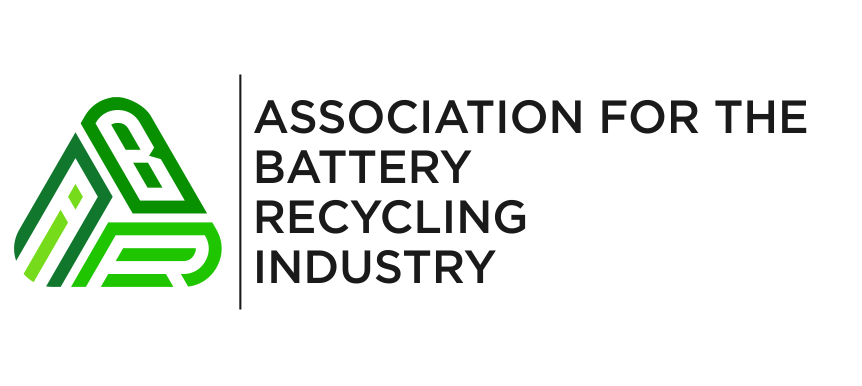20 June 2023
1. ABRI CONFERENCE SHOWCASING THE AUSTRALIAN BATTERY RECYCLING INDUSTRY - SECURE YOUR PLACE BEFORE 22 JUNE FOR THE EARLYBIRD DISCOUNT
Have you signed up for the Australian Battery Recycling & Manufacturing Summit 2023 yet? Join attendees from battery recycling, academia, stewardship, battery retailers and other organisations to learn more about how the industry is preparing for 2030 and the step change in batteries coming through for recycling.
Take advantage of the early bird discount which ends this week! Register before Thur 22 June and enjoy savings of up to 100 AUD.
Australian Battery Recycling & Manufacturing Summit examines opportunities and challenges for the battery recycling sector and a circular economy as well as how the industry can be at scale to support electrification. Join battery producers & recyclers, manufacturers, government representatives and other industry stakeholders at this prestigious event in Sydney, Australia on 31 August.
Sponsorship opportunities are still available. Held in partnership with Spire Events, further event details can be found at Australian Battery Summit.
2. PROVIDE YOUR EXPERT FEEDBACK TO THE DRAFT REVISED ABRI GUIDELINES FOR PACKING AND SAFE TRANSPORT OF USED LEAD ACID BATTERIES (ULAB)
ABRI is consulting on a revised draft Guideline for packing and safe transport of ULAB. A working group session on the draft guideline will be scheduled for Thursday 6 July. Subject to feedback, ABRI plans to publish the revised guideline by end July.
Changes included in the guideline cover:
Additional information on the: National Heavy Vehicle Law and Associated Waste and Recycling Industry Code of Practice; and the National Transport Commission’s load restraint guides to ensure compliance with load restraint standards for light and heavy vehicles in Australia.
Noting a preference for machine wrapping where possible
Clearly stating that used lithium batteries cannot be packed with ULAB. The National Heavy Vehicle Law establishes Chain of Responsibility requirements which captures parties packaging batteries. This includes ensuring the business has and uses the resources required to eliminate or minimise the hazards and risks created by its transport activities.
Clarification around the requirements for stacking ULAB by 2 or 3 layers which are determined by the weight limits of the pallet on which the batteries are stacked
Information on interstate waste tracking and permits, particularly to address changes in Victoria
Thanks to ABRI member DGL who has agreed to responsor the update to the Guidelines.
3. EU BATTERY PASSPORT CONTENT GUIDELINE
For those interested in finding out more about possible implementation of the EU battery passport. The Battery Pass website and Battery Passport Content Guidance provides useful information and technical detail. It’s been put together by automotive, government and other battery stakeholders in Germany.
4. CWLTH CONSULTATION ON EXPANDING NTCRS AND A MANDATORY PV STEWARDSHIP SCHEME
Wired for change – strengthening e-waste and PV mandatory stewardship in Australia – is now open for consultation. Importantly, this will capture batteries embedded in ewaste and reduce loss of critical minerals to landfill.
The question for battery recycling stakeholders is what’s the most effective way to manage solar energy storage battery recycling given linkages with PV installation, product differences and the dangerous goods nature of batteries. Energy storage batteries are not proposed to be included in the PV scheme. However, the consultation paper is seeking stakeholder input on options for managing these batteries given the installation linkages with PV systems.
Read the details in the discussion paper and have your say at the Department of Climate Change, Energy, Environment and Water (DCCEEW) dedicated consultation web page. Consultation closes 23 July.
5. BASEL CONVENTION - ENVIRONMENTALLY SOUND MANAGEMENT OF WASTE BATTERIES - LEAD, LITHIUM, ALKALINE/ZINC CARBON, NICKEL BASED, MERCURY, MIXED AND OTHERS
The Basel Convention parties, including Australia, are prioritising work on environmentally sound battery recycling. The two projects underway are:
Revision and modernisation of the Technical Guidelines on the Environmentally Sound Management of Waste Lead-Acid Batteries. The latest draft is available here.
Development of Technical Guidelines on the Environmentally Sound Management of Waste Batteries other than Waste Lead-acid batteries. This includes lithium, alkaline and zinc batteries, nickel based, mercury, mixed and other batteries. The first step, a draft table of contents, is now complete.
ABRI is participating as an observer to the project and has an opportunity to provide feedback by 30 September. If you have comments, please send an email to ABRI CEO, Katharine Hole.
